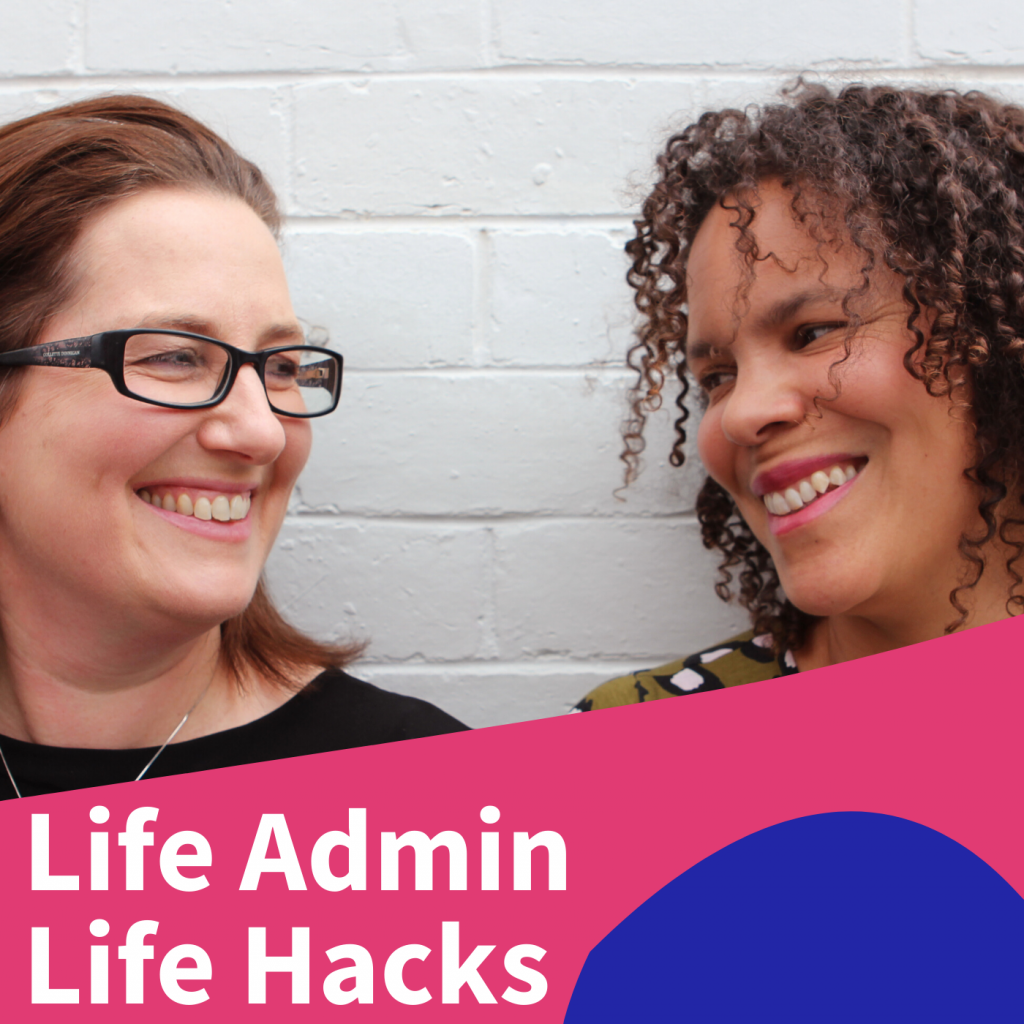You’re a medical professional, but at home you may also be chief bill payer, gift buyer, tax agent or meal planner. You’re the one who knows the internet contract has expired and you should be shopping around for a better deal. You’ve noticed the car needs servicing and there are still no plans for Father’s Day. You’re running your personal and professional life, and possibly the day-to-day logistics of children or your partner. You may find yourself stressing about tasks not done and decisions not made when you’d rather be focused on the patient in front of you, or your child, or your book, or falling asleep. Life admin – those personal administrative tasks and chores that make our lives work – can easily become overwhelming.
Life is generally more complex these days. We live in an era with abundant choice, more regulation and more expense. We get to choose who provides us with electricity, what plan will suit us best, how we wish to pay and how often. We get licenses to fish and permits to park outside of our homes. We sign up for broadband and streaming video plans, dealing with paperwork that our parents never had to encounter as young adults. Contemporary life demands more decisions, more forms to fill out and more fees to pay.
You are not alone in feeling that life admin has exploded and takes up too much of your time. Life admin contributes to anxiety, resentment and friction between couples as the to-do lists grow and the roster of tasks never ends. And it’s not just the execution of admin tasks that contribute to these feelings, it’s also the mental load that accompanies them. The mental load, or emotional labour, is the anticipating, planning and consideration that is required to keep chaos at bay. This loss of headspace is usually carried by one person in a household, and it is invisible, persistent and stressful.
When it comes to life admin, having the right tools and systems can make the difference between things feeling totally on track or completely out of control. It also helps to share the mental load within a couple or family, so one person isn’t on point for the smooth running of the household.
Free up headspace for more peace of mind
You’ll have more energy and clarity to put towards substantial tasks once you set foundations that enable smooth processes:
- Get a password manager and stop trying to remember passwords for the online tools you use at work and home. Password managers plug into your web browser and run as an app on your smartphone, and can create strong, secure passwords when required. They automatically fill in your passwords for online forms, giving you one less thing to think about.
- Go paperless. Free yourself from paper clutter, which accumulates in hot spots around your home and office. Those messy zones can drain your energy just by thinking about them. Opt for online or emailed statements, bills and communications, which can be saved, if necessary, in cloud storage instead of requiring manual filing, recycling or shredding.
- Set up a shared calendar for your household so there is more transparency about your family’s commitments and events. A single point of truth makes it easier to determine who needs to be where when, and gives visibility to how much activity and running around is required. A shared calendar capturing all the salient details of activities also enables those activities to be executed by others more readily. Moving to a digital calendar means you can refer to it on the fly, add to it in real-time and know your true availability.
- Schedule the inevitable, the inspirational and an hour of power. We’re used to scheduling tasks and commitments for work, but often neglect this useful practice in our personal lives. You know you’re going to need a haircut, a dentist appointment and a car service this year. Proactively schedule these inevitable, regular activities when it’s convenient for you instead of reacting to them. Make time in the calendar for the activities that nourish you and align with your aspirations. Trips with friends, mountain biking, date nights – if they’re scheduled in a calendar they’re more likely to get done. Schedule time also for dealing with life admin, instead of erratically dealing with urgent rather than important tasks. Consider how you might dedicate time to your to-do list tasks. Allot an ‘hour of power’ each week, fortnight or month, for tasks that require a focused effort. Identify which items in your to-do list are ‘ten-minute time killers’, which can be done in idle time. Lastly, avoid putting brief tasks on your to-do list at all. Think ‘two minutes, too easy.’ Quick tasks can be done immediately, as they arise, giving you a sense of progress and accomplishment.
At the workplace
- Schedule a weekly slot for CPD, where you can read the literature, watch a webinar or research potential courses and conferences to attend.
- Create an email filter to assign industry, professional association and course provider newsletters to appropriate folders so that your inbox remains uncluttered. Use your CPD time slot to review them.
- Consider how the way you work contributes to the life admin of your patients. Do they have to call to make an appointment or respond to your schedule of dates, or can they conveniently access appointment times online? Can they save an appointment event directly into their digital calendar? Do you provide hard copies of paperwork that might contribute to their paper clutter, or could the same material be provided in soft copy to be filed in cloud storage or read and deleted? Do you provide advice on how long documents need to be kept for? Navigating the healthcare system, especially Medicare and private health insurance, can also increase the life admin burden for patients. Offer clarity in the tasks they need to do with various providers and services, to provide peace of mind and to save your patients’ time and money.
When the extent of your life admin triggers feelings of overwhelm or tension, it can undermine other self-care practices you put in place. It’s difficult to be present and mindful, to relax and get grounded with a litany of admin tasks flitting through your mind. Invest a few nights or a weekend to set up these useful tools and kickstart new habits to minimise, automate and share your life admin more easily. The saved time is then yours to direct towards something truly more rewarding and meaningful.
Admin action stations
From this day:
- every bill or statement that arrives in an envelope will trigger you to set up an online account and opt into paperless communication.
- buying birthday or Christmas gifts is no longer the domain of one person in your household.
- you will never again attempt to compare every provider in the market before you switch plans for mobile, internet or health insurance.
- getting a friend’s recommendation for a solicitor to draft a will and powers of attorney is a top priority, if you’re yet to do so.
Password manager pointers
Password managers work by remembering all the individual passwords to the sites and apps you use. All you have to do is remember the master password for the password manager, and then it does the rest. When you visit a new site, it will ask whether you want to create a password or store an existing password for the future.
Why bother with a password manager?
- Have login details populated automatically
- Generate strong passwords for better online security
- Fill online shopping forms with payment and shipping details automatically
- Have a consistent password tool across multiple devices
- Use their secure data vaults to store any information securely, such as Wi-Fi passwords, passport numbers or credit card details
Lastpass and Keeper are available to test via free trials.
Mia Northrop is co-host and producer of the Life Admin Life Hacks podcast, a podcast that gives you back time, money, peace of mind and household harmony.






Leave a Reply